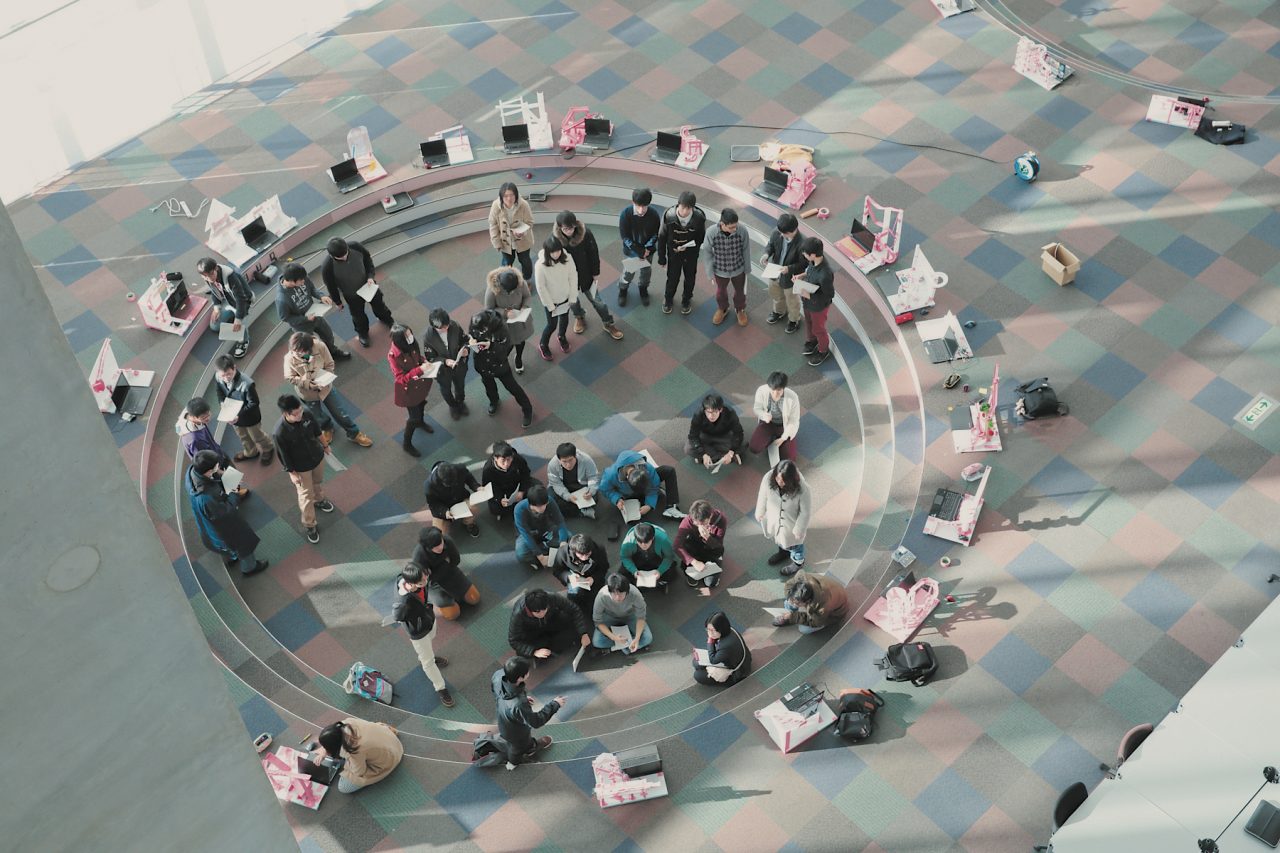Communication ability – the ability to listen to others and express ourselves – is very important for self-development and self-realization. At FUN@Hakodate, our theories of communication will grow out of our own lively, engaging, and authentic practice. So-called expert theories will not be handed meaninglessly to students to memorize, but rather our theories will develop through reflection of learners’ own work, as well as an understanding of the theories of others. In keeping with our concept of barrier-free learning spaces, communication, including the use of English and all sorts of media, is not something only taught in special classes held at particular times a week; it is an integral part of university life, with every subject stressing both the science and practice of communication along with the communication and practice of science
Both research and presentation are part of heart of learning. One of the important aims of FUN@Hakodate is to help learners see the value of research and presentation in their personal and professional lives, and to begin to develop their confidence as communicators in a wide range of
situations, utilizing a wide range of media. Working in schools, homes for the aged or handicapped, on newspapers/radio/tv, and even street performances are ways we will enter into dialogue about the arts, science and technology with the local community. Furthermore, this dialog will be expanded beyond our local community of learners to the universe of learners though the internet and a-v conferencing, bi-lingual journals and tv shows as well as summer or year long exchange programs. With this design, foreign language skills will not be imposed but developed from the felt needs of the students.
The contents of Project Based Activities will include presentation and exhibition design, technique of media use, theories of human cognition and communication, cooperative problem solving, and project design itself. A wide range of final outcomes will be honored – such as a traveling performance with acts demonstrating particular scientific principals that might be given to children, an interactive scientific exhibition in our university museum, a journal or tv show aimed at audiences around the world. In this way students’ ability to communicate scientific ideas in real world situations will be developed, a very different situation from the traditional university structure where knowledge is presented in rather limited ways only to a teacher.

